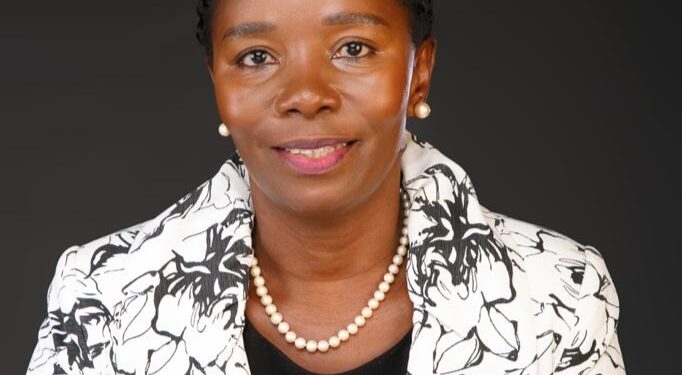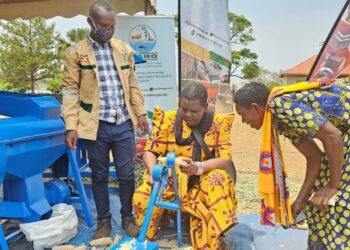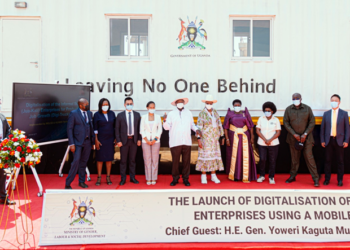Who is Margret Nakato?
Margret is the Coordinator Katosi Women Development Trust, a non profit organisation, that works with rural and fisher women to improve their livelihoods through economic empowerment, support in WASH, access to formal and non formal education and environment conservation. She is also a member of the National Task Team for the development of the National Plan of Action to Implement the SSf Guidelines.
What and Why: SSF Guidelines
The Voluntary Guidelines for Securing Sustainable Small-Scale Fisheries in the Context of Food Security and Poverty Eradication are the first internationally agreed instrument dedicated entirely to the immense importance, but until now, often neglected small-scale fisheries sector. Accordingly, the SSF Guidelines are intended to support the visibility, recognition and enhancement of the already important role of small-scale fisheries’ contribution to global and national efforts towards the eradication of hunger and poverty. The SSF Guidelines support responsible fisheries and sustainable social and economic development for the benefit of current and future generations, with emphasis on small-scale fishers and fish workers and related activities and including vulnerable and marginalized people, promoting a human rights-based approach. These SSF Guidelines are voluntary, global in scope, and focuses on the needs of developing countries.
What has been the scope of the trainings on SSF Guidelines?
To enhance implementation, awareness on the SSF Guidelines is important. With funding from BMZ through GIZ RFBCP, KWDT has trained over 2,085 fishers and fish workers from 15 districts of Lake Victoria and 1 District of L. Albert with 56% women. All trainings included the background information on the processes that led to the development of the SSF Guidelines as well as the spirit in which the SSF Guidelines were developed. This was aimed to motivate fishers and fish workers of their potential to transform fisheries and to be inspired by the inclusive and global consultative process and how it can be beneficial to them.
During the discussion on the SSF Guidelines recommendations, emphasis was put on engaging communities to identify possible actions that they can undertake to support implementation of the SSF Guidelines, as key stakeholders (social movements and civil society organisations representing small- scale fishers and fish workers, government, development partners, international and regional organisations, academia and environmental and development non – governmental organisations (NGOs) as stipulated in the SSF Guidelines.
Capitalising on in built buy in of the SSF Guidelines to engage with all different actors involved in the sub sector to ensure that communities refrain from the usual lamentation ‘tusaba government etuyambe’ meaning “we are requesting for government to help us” to instead take practical actions, within their means to start on the implementation of the recommendations in the SSF Guidelines.
What has been the response of fisherfolk communities towards SSF Guidelines?
Majority of fisher communities were surprised that there was an existing global process that dedicated time and attention to fisheries, a disregarded sector, which motivated many. However, awareness recommendations on human rights infuriated many as they recognised that their rights have been violated and abused during the enforcement. They showed scars as a result of brutal enforcements and arrests and condemned the enforcement that excluded them in decision making, drawing on the consultative process undertaken during the development of the SSF Guidelines. Other than exclusion, it disrupted local efforts to curb illegal fishing where they existed, for example in Mugangu and Ndotwe landing sites as reported by the participants.
In all communities there was a call for an inclusive management of fisheries. They expressed concern of the broken communication between leaders and fishers. A safe space for dialogues with Fisheries Protection Unit and the communities was recommended, important to rule out irregularities during enforcement and between sectors, which was accelerating unabated encroachment on land crucial for sustaining fisheries activities, for example sand mining.
“We need clarifications from NEEMA about the 200m around the lake shores to overcome the problem of people who claim to have bought and own those areas, prohibiting us from using that free space”. Bule Banga Landing Site
The training provided an opportunity to reflect on traditional norms and their contribution to sustainability of the fisheries and agreed to enforce traditions that were not discriminative and contribute to responsible fishing and conservation.
Although almost all communities had occurances of both legal and illegal fisheries, actions to take were discussed to shift from illegal fishing though support was requested from one community to another to enable them transform their fishing activities.
Capacities to engage in sustainable resource management were identified particularly amongst women and there was an agreement of supporting women to leadership.
They acknowledged that fishers are ignorant and majority illiterate and with new migrants, trainings in diverse areas including good fishing practice were deemed very important.
“Our fish was once confiscated and to avoid being detained we ran. We approached the Mayor who advised us to get licenses to avoid inconveniences in the future which we did. Since then, we have been peacefully smoking fish. If we do the right things we can comfortably engage in fishing.”- Kasensero
There was a wide and loud outcry for the lack of access to basic social services; hospitals, poor roads, schools, financial services, medical facilities, calling upon government to invest in fisheries according to the revenues generated from fisheries.
Whereas there was consensus to invest in fisheries to improve on the value chain, through working in groups, cooperatives and associations, there was a need for external intervention for meaningful transformation.
The trainings have empowered women to engage in fisheries with many communities responding positively to support equal participation and access to fisheries resources.
“Women are given money that doesn’t exceed 500,000/= ($140) because of the mindset that women are not creative enough to invest in business”. Sexual favors for fish was unveiled in all the trainings although interventions to address the vice require long term interventions to address the challenge.
Inclusive safe spaces for dialogues with FPU, inclusion in enforcement of the fisheries regulation, continued awareness on the SSF Guidelines to the BMU, FPU and the entire fisher community as well as awareness on the new regulations before enforcement were agreed as necessary steps of action.
What has been the short term impact of the SSF Guidelines?
The SSF Guidelines brought hope for many to continue to engage in the sector while recognition of the need to transform fisheries from illegal to legal in majority of the fishing communities and strategies to contribute to the speedy transformation such as forming savings groups to increase their savings for investment in fisheries, working in associations, were identified for uptake. Many were eager to disseminate information on the SSF Guidelines using the learning materials handed out.
What do the SFF Guidelines state about co-management?
The SSF Guidelines are strong on co-management to the extent that they include building capacities of fishers and fish workers to engage in the co-management of the resources. Majority of the communities were committed to engage in the co-management as demonstrated by the desire to monitor implementation of the SSF Guidelines.
“There is need for the development of the monitoring unit with a collective and coordinated action towards implementation of the SSF Guidelines” reported participant from Dajje landing site.
What are the KWDT future plans regarding the awareness and sensitization on the SSF Guidelines?
There was demand to increase awareness on the SSF Guidelines to all fishers and fish workers as only 20 were targeted in each community, train the enforcement team including fisheries officers and the Fisheries Protection Unit. KWDT will continue to disseminate the SSF Guidelines video and integrate viewing the video in ongoing training programs as well as using the video to stimulate dialogues. KWDT will further use the SSF Guidelines as a tool for negotiation on interventions with development partners.
What is the future for small-scale fisheries in Uganda?
Threats to the sector arise from competition from other sectors, climate change, over fishing, policy implementation as well as coordination and coherence. The development of the guidelines does not secure small scale fisheries but rather the implementation of the recommendations in the SSF Guidelines. The progress we are making as a country is to establish the multi-stakeholder National Plan of action to support the SF Guidelines Implementation
What message do you have for the small -scale fishers in Uganda?
They have a role to transform the fishery to ensure that benefits from the small-scale fishery are sustained. The SSF Guidelines documents are not sufficient to transform the fishery without the purposeful actions of fisher and fish workers to engage in responsible fishing.
Do you have a story in your community or an opinion to share with us: Email us at editorial@watchdoguganda.com













